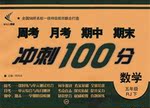题目内容
________ surprises us most is that she doesn’t even know _______ the difference between the two opinions lies.
A. It; which B. What; what
C. What; where D. That; where
练习册系列答案
 新非凡教辅冲刺100分系列答案
新非凡教辅冲刺100分系列答案
相关题目
题目内容
________ surprises us most is that she doesn’t even know _______ the difference between the two opinions lies.
A. It; which B. What; what
C. What; where D. That; where
 新非凡教辅冲刺100分系列答案
新非凡教辅冲刺100分系列答案